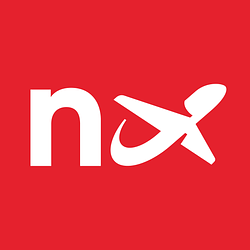Press release -
Thousands of new U.S. jobs, more competition and lower fares - Norwegian outlines the facts about its Irish operation
The United States Department of Transportation (DoT) issuing an order proposing to grant a foreign carrier permit to Norwegian Air International (NAI)has been widely welcomed by airports, tourism and passenger groups, senior politicians and industry bodies on both sides of the Atlantic. At the same time, well-known and false allegations from opponents have resurfaced. This document addresses some of these allegations.
Since launching transatlantic flights in 2013, Norwegian has enabled 2.2 million passengers access to more affordable travel between the U.S. and Europe. These flights have also helped create hundreds of new jobs in the air as well as more than 17,000* on the ground in the travel and tourism-related industries. Norwegian already now employs more U.S.-based crew than any other foreign airline, all of whom are employed under U.S. law. In addition, Norwegian’s order of Boeing aircraft valued at $18.5 billion and Pratt & Whitney engines for its Airbus aircraft is helping to create and support up to 100,000 jobs**.
A final approval for NAI’s foreign carrier permit would allow Norwegian Group to continue expanding its U.S. operations, which would result in the creation of thousands of additional jobs, significant economic benefits in the U.S. and Europe, and also allow passengers on both sides of the Atlantic to continue accessing affordable fares.
Despite these very clear benefits, there are labour unions, airlines and politicians that continue to do everything they can to block the competition, which prevents the American people from being able to access affordable airfares and job opportunities.
In many cases, these groups are simply repeating misleading allegations that have been disproved and dismissed several times for more than two years. These allegations also ignore the DOT’s initial order from last week that states: NAI “appears to meet the DOT’s normal standards for award of a permit and that there appears to be no legal basis to deny NAI’s application”.
HERE ARE THE FACTS:
NAI WILL CREATE TENS OF THOUSANDS MORE JOBS IN THE U.S.
Opponents claim that NAI will ‘destroy’ American jobs – in fact, the opposite is true as is already evident today. The start of NAI services to the U.S. will help create scores of new jobs in the U.S. both in the air and on the ground. Norwegian already employs more U.S.-based crew than any other foreign airline, all of whom are employed under U.S. law. Since 2013, Norwegian has also helped create hundreds of new jobs in the air as well as more than 100,000* on the ground in the travel and tourism-related industries - Norwegian already now employs more U.S.-based crew than any other foreign airline, all of whom are employed under U.S law. In addition, Norwegian’s order of Boeing aircraft valued at $18.5 billion and Pratt & Whitney engines for its Airbus aircraft is helping to create and support up to 100,000 jobs**.
NAI HAS NO ASIAN-BASED CREW AND WILL USE U.S AND EU-BASED CREW ON TRANSATLANTIC FLIGHTS
Opponents have raised false allegations that NAI uses low-paid Asian crew. In fact, NAI does not have a single Asian-based crewmember or pilot, and Norwegian has continuously publically stated (and committed in writing to the U.S. DOT) that U.S. and EU-based crew will be used on NAI transatlantic services.
NAI IS HEADQUARTERED IN DUBLIN, HAS IRISH-REGISTERED AIRCRAFT AND HAS NEW IRISH ROUTES PLANNED
Opponents claim that Ireland is simply a “flag of convenience”.In reality, NAI is headquartered in Dublin with 80 employees, 37 aircraft registered in Ireland, and already operates flights to and from Ireland, with many more routes planned. Final approval for NAI’s foreign carrier permit will allow long-awaited new routes from Cork to Boston to begin in 2016, followed by services from Cork to New York in 2017. NAI is also actively looking at further expansion in Ireland with new routes from other Irish airports.
NORWEGIAN’S STAFF ARE EMPLOYED UNDER THE LABOUR LAWS OF THE COUNTRY IN WHICH THEY ARE BASED
Opponents have suggested that Norwegian is offering substandard working conditions and that the NAI operation is an attempt to circumvent the labour laws of Norway and the United States. The fact is that Norwegian always follows the rules and regulations in all the markets in which it operates and offers employees competitive wages and conditions. The hundreds of Norwegian employees in the U.S. are governed by U.S. labour laws and say that their wages and benefits are on par with their counterparts at U.S. airlines. Pilots flying intercontinentally have a global pay scale, which means that a long-haul pilot based in Europe makes about the same as a long-haul pilot based in Asia or the U.S. Put simply, regardless of which part of Norwegian they work for, crew and pilots follow the labor laws in the country in which they are based.
NAI MEETS ALL REQUIREMENTS OF THE OPEN SKIES AGREEMENT, AS CONFIRMED BY THE DOT
During NAI’s long-running application with the DOT, opponents have unsuccessfully tried to argue that the airline should not be covered under the terms of the EU-US Open Skies Agreement. DOT’s initial order last week confirms that NAI “appears to meet the DOT’s normal standards for award of a permit and that there appears to be no legal basis to deny NAI’s application”.
NORWEGIAN IS CREATING MORE COMPETITION, ITS OPPONENTS ARE TRYING TO BLOCK IT
The launch of low-cost long-haul services in 2013 was because Norwegian believed that greater competition on international flights was long overdue. Three years later, Norwegian now offers 33 transatlantic routes, often in direct competition with other major airlines. Despite this, opponents to Norwegian’s expansion in the U.S. have absurdly tried to argue that this poses a threat to competition. This is clearly untrue; the only threat Norwegian poses is to the near-monopoly that has for many decades existed in transatlantic travel, and protected by joint ventures and alliances. A final approval for NAI will simply underline exactly what the EU-US Open Skies agreement was designed for – to create more competition among airlines, leading to greater choice and lower fares for passengers.
NORWEGIAN’S TRANSATLANTIC OPERATION IS FUELING TENS OF MILLIONS OF DOLLARS OF ECONOMIC ACTIVITY
Opponents to Norwegian’s U.S. expansion are conveniently trying to ignore the huge economic benefits that are already being delivered in America. With flights already operating to and from ten U.S. destinations, Norwegian has helped generate tens of millions of dollars of economic activity in these regions through travel and tourism. In terms of the U.S. aviation industry itself, Norwegian currently has a firm order of 149 U.S. manufactured Boeing 737s and 787s valued at more than $18.5 billion at current list prices. During the past seven years, Norwegian has taken delivery of 103 brand new U.S. manufactured Boeing aircraft (direct buys and leases). In addition, the company has an order of Pratt & Whitney engines for its Airbus aircraft. Therefore, in aviation, tourism and manufacturing, Norwegian is already fuelling tens of millions of dollars of economic activity in the U.S. – this would only increase with NAI’s expansion.
NORWEGIAN HAS BEEN RUNNING A SAFE AIRLINE OPERATION SINCE 1993
Opponents have desperately tried to argue that Norwegian and NAI’s business model compromises safety; this is clearly untrue and can be considered fear-mongering. Safety has always been the company’s number one priority and Norwegian has been running a safe airline operation since 1993. The company fully complies with European safety standards (EASA) and its crews are trained according to EU standards and the company’s own additional training programs. Ireland, where the NAI subsidiary is located, has one of the highest ranked civil aviation authorities in the world.
NORWEGIAN IS 100 PER CENT PRIVATELY OWNED AND HAS NEVER RECEIVED ANY GOVERNMENT SUBSIDIES
Opponents have tried to suggest that Norwegian is government-sponsored and has an unfair advantage. Norwegian is 100 percent privately owned, is listed on the Oslo Stock Exchange and has never received any government subsidies.
----------------
* Since May 2013, Norwegian has carried approximately 1.5 million visitors to the United States. Based on the U.S. Department of Commerce’s own estimates that one additional U.S. job is created for every 86 international visitors, Norwegian has created 17,400 new jobs.
https://www.whitehouse.gov/the-press-office/2014/05/22/fact-sheet-report-president-obama-visits-cooperstown-highlight-travel-an), from 2009-2013 (175,000 new jobs overall).
** Norwegian currently has a firm order of 149 U.S. manufactured Boeing 737s and 787s valued at more than $18.5 billion at current list prices. Based on the U.S. Department of Commerce’s own estimates that $1 billion worth of export goods create 5,279 jobs, the company is helping to create and support up to 100,000 American jobs.

